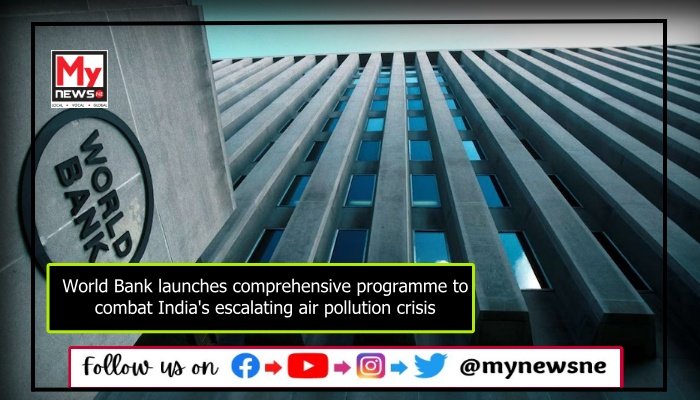World Bank Unveils Holistic Program to Tackle Rising Air Pollution Crisis in India
National Desk, 9th December: Amidst the worsening air pollution crisis in India, affecting its entire population of 1.4 billion, the World Bank has launched a comprehensive initiative to combat the adverse impacts of ambient particulate matter (PM) 2.5 pollution.
This effort encompasses the implementation of airshed management tools, the formulation of State-wide Air Quality Action Plans, and the establishment of the first-ever comprehensive Regional Airshed Action Plan for the Indo-Gangetic Plains (IGP), covering union territories and states.
Recent data underscores that every individual in India is exposed to unhealthy levels of PM2.5, a hazardous airborne pollutant known for causing severe health issues such as lung cancer, stroke, and heart disease. In 2019 alone, air pollution contributed to 1.67 million deaths in India, constituting 17.8 percent of the total mortality rate. The economic repercussions were substantial, with losses amounting to USD 36.8 billion or 1.36 percent of India’s Gross Domestic Product (GDP) due to premature deaths and morbidity resulting from air pollution.
PM2.5 emissions in India emanate from diverse sources, including fossil fuel combustion, biomass burning, and windblown dust from construction sites and industrial plants. The magnitude of the challenge necessitates a concerted global effort to address this pressing environmental and public health issue.

